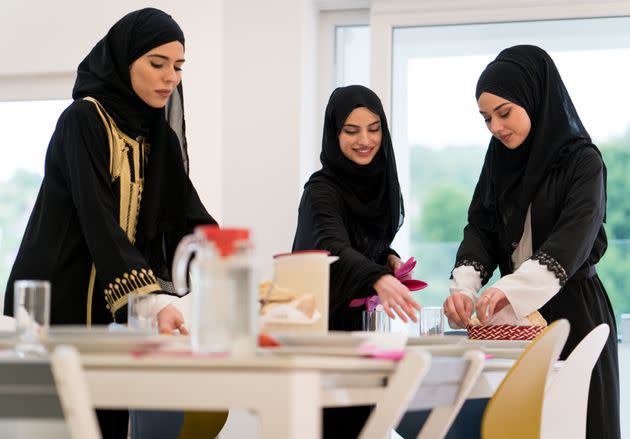Ramadan 2024: 5 Ways Teachers Can Help Students Who Are Fasting

Once they get to a certain age as Muslim children, they are encouraged to fast. Though this is often around puberty — for some it might be even earlier if they’re stubborn and take a keen interest!
Often kids will go to school and be fasting with teachers and education providers unaware. I remember when I used to fast in school no-one really ever knew unless it was the friends I would sit with at lunch.
Fasting in school has its challenges, obviously you can’t eat or drink and might be low on energy — so, for teachers, how can they help students that are observing Ramadan?
How can you help students in Ramadan?
With 1 in 12 schoolchildren in the UK that are Muslim, support from schools and teachers is vital during Ramadan, as some students balance fasting with their studies.
Explore Learning, an award-winning tuition company that works closely with schools, spoken to its staff to find out the approaches that work best during Ramadan.
Rashpreet Chane, Yardley Tuition Centre Manager, explains open conversations are vital, she said: “The way that we support children during Ramadan is by having an open conversation with the child to see how they’re feeling and what they would need as support. This helps to establish trust and a safe environment for the child and helps everyone get excited for the special time they’re having.”
1. Giving optional alternatives at lunchtime
Where possible, you could give an alternative option to children at lunchtime. So rather than getting them to sit in the school canteen, maybe create a space where they can pray or do other activities.
Khudayja Makda, Explore Learning Bradford Centre Manager, explains, “Always having space for praying/worshipping is important so students don’t feel awkward or out of place when having to ask where to pray.”
2. Making understanding a priority
Khudayja says: “As a lot of schools are moving towards inclusion even more than before, it is very important to keep in mind that students need to be educated about Ramadan, especially if they have Muslim peers studying with them.”
The month is a great time to educate other children about different religions and cultures. Most Muslims are usually welcome to questions and are excited to talk about the Ramadan experience.
This ensures that all children are aware of the month and can increase peer support.
3. Being considerate of evening meetings
As we know, Muslims open their fast just after sunset. After eating they pray and then go to the mosque so evenings are pretty busy.
With after-school parents’ evenings or extra-curricular events this can be difficult to manage and may often clash with Iftar.
It might be worth planning evening events outside of the month of Ramadan.
Alternatively you could give families a separate time if they are observing Ramadan.
4. Being flexible with participation
With no eating and drinking, fasting can lead to tiredness and low energy levels. Offering children alternative activities if there is a planned activity that requires physical exertion can be helpful.
This can help fasting students feel supported whole also encouraging an environment where students feel comfortable opting out of activities. In turn that crates a sense of inclusivity.
5. Celebrating together!
Explore Learning’s Khudayja Makda explains it can be condescending if you say you feel sorry for those fasting.
They explained: “Those observing Ramadan may appear low on energy or take a little bit longer to do tasks but it’s important not to be condescending and feel sorry for them. Instead, be aware that they choose to fast as a way of thinking about those who don’t have access to necessities like food and water.”
Wishing observing students “Ramadan Mubarak” throughout Ramadan, “Ramadan Kareemat” at the end of Ramadan, and “Eid Mubarak” when Eid starts is a great way to get involved!
Rashpreet Chane, Explore Learning Centre Manager, explained the importance of adapting the learning process during Ramadan: “It’s important to take your time to explain methods and allow the child to process the information at their own pace, allowing for any small breaks to support with engagement.
“It’s always good to have regular check-ins with the child to see how they’re doing as well as tailoring to how they learn. By creating that safe space, they will be able to tell you if they need a break or a deeper explanation of the topics they’re learning. This allows the child to learn in a safe environment that is tailored to their needs to allow them to continue to be fearless with their learning.”

